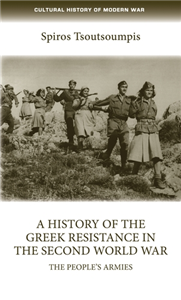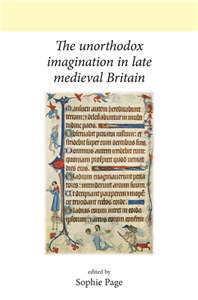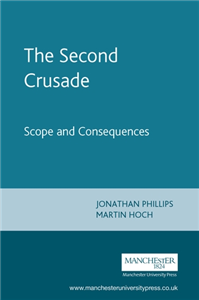Your Search Results
-
Promoted Content
-
Promoted Content
-
 Trusted Partner
Humanities & Social SciencesDecember 2016
Trusted Partner
Humanities & Social SciencesDecember 2016The role of terrorism in twenty-first-century warfare
by Susanne Martin, Max Taylor, Mark Currie, John Hogan, Leonard Weinberg
-
 Trusted Partner
Humanities & Social SciencesMay 2025
Trusted Partner
Humanities & Social SciencesMay 2025The Caucasus Emirate
Ideology, identity, and insurgency in Russia’s North Caucasus
by Mark Youngman
Insurgency has plagued the North Caucasus since the collapse of the Soviet Union. Between 2007 and 2015, rebels waged their struggle under the banner of the Caucasus Emirate (Imarat Kavkaz, IK). This book systematically examines the IK's ideology to explain what the group claimed to be fighting for and against and how it sought to mobilise people behind its cause. It reveals a group with a weakly developed political programme, which aligned itself with global jihadism but consistently prioritised local concerns. It demonstrates the priority rebel leaders afforded to shaping local identities, but also their failure to forge a unified movement or revitalise armed struggle. Re-evaluating the IK's ideology helps us better understand the past and future of armed struggle in the North Caucasus.
-
 Trusted Partner
Humanities & Social SciencesJanuary 2012
Trusted Partner
Humanities & Social SciencesJanuary 2012The Second Labour Government
A reappraisal
by John Shepherd
This new edited collection of essays focuses on the history of Labour's second period in office during the 1929-1931 global financial crisis. Contributions by leading historians and younger academics bring fresh perspectives to Labour's domestic problems, electoral and party matters, relations with the Soviet Union and ideological questions. An important range of new historical research provides a much-needed reappraisal of Ramsay MacDonald's second Labour government, which impressed few with its conventional policies for tackling mass unemployment. Oswald Mosley, John Maynard Keynes and Ernest Bevin's alternative economic strategies are critically studied in key essays. A more positive side of the government's policies is also adeptly revealed on consumerism and agriculture. Significant new light is adroitly shed on the 1929 general election, the first fought on a universal franchise. The intricate politics of the Parliamentary Labour Party and the disaffiliation of the Independent Labour Party are convincingly explored. The influence of the Soviet Union on Labour's thoughts and actions is analysed in valuable accounts of Labour's foreign policy and Labour's turn to socialism after 1931. An important fresh account of opposition politics breaks new ground on the reaction of Tory politicians, including Harold Macmillan, to MacDonald's government. The volume concludes with an absorbing analysis of the myths surrounding '1931' in Labour history. This timely volume makes accessible a major reassessment of existing knowledge and new scholarship that will appeal to students and teachers of British political and social history. It is essential reading for sixth form and university courses on twentieth-century history. ;
-
 Trusted Partner
Humanities & Social SciencesAugust 2016
Trusted Partner
Humanities & Social SciencesAugust 2016The People's Armies
A history of the Greek resistance
by Bertrand Taithe, Penny Summerfield, Peter Gatrell, Max Jones, Ana Carden-Coyne, Spiros Tsoutsoumpis
The people's armies discusses one of the most troubled and fascinating aspects of modern Greek and European history: the anti-axis resistance. It is a pioneering history of the men and women who waged the struggle against the axis as members of the armed partisans of ELAS and EDES. Using a wide range of previously unused sources, the book reconstructs daily life in the guerrilla armies and explores the complex reasons that led the partisans to enlist and fight. It also discusses the relations between the guerrillas and the civilian population, and examines how the guerrillas' experience of combat, hardship and loss shaped their understanding of their task and social attitudes. The book makes fascinating reading both for academics and for lay readers who are interested in modern Greek history, military history and the history of the Second World War. ;
-
 Trusted Partner
Humanities & Social SciencesMarch 2017
Trusted Partner
Humanities & Social SciencesMarch 2017Migrant races
Empire,Identity and K.S. Ranjitsinhji
by Andrew Thompson, John M. MacKenzie, Satadru Sen
This book is a study of mobility, image and identity in colonial India and imperial Britain in the late nineteenth and early twentieth centuries. It is a model for studies of migrant figures like K.S. Ranjitsinhji who emerged during the imperial period. Ranjitsinhji is an important figure in the history of modern India and the British empire because he was recognized as a great athlete and described as such. The book focuses on four aspects of Ranjitsinhji's life as a colonial subject: race, money, loyalty and gender. It touches upon Ranjitsinhji's career as a cricketer in the race section. The issue of money gave Indian critics of Ranjitsinhji's regime the language they needed to condemn his personal and administrative priorities, and to portray him as self-indulgent. Ranjitsinhji lived his life as a player of multiple gender roles: sometimes serially, and on occasion simultaneously. His status as a "prince" - while not entirely fake - was fragile enough to be unreliable, and he worked hard to reinforce it even as he constructed his Englishness. Any Indian attempt to transcend race, culture, climate and political place by imitating an English institution and its product must be an unnatural act of insurgency. The disdain for colonial politics that was manifest in the "small rebellions" at the end of the world war converged with the colonized/Indian identity that was evident at the League of Nations. Between the war and his death, it is clear, Ranjitsinhji moved to maximize his autonomy in Nawanagar.
-
 Trusted Partner
Literature & Literary StudiesMarch 2013
Trusted Partner
Literature & Literary StudiesMarch 2013Simone de Beauvoir's The Second Sex
by Jeff Wallace, Ruth Evans, John Whale
Acknowledged by many feminists as the single most important theoretical work of the twentieth century, Simone de Beauvoir's The Second Sex (1949) nevertheless occupies an anomalous place in the feminist 'canon'. Yet it has had an undeniable impact, not only on the development of critiques of sexual politics but on twentieth-century western thinking about the concept of 'woman' in general. This collection of six new essays by scholars from the disciplines of French, English literature, history, cultural criticism, feminist theory and philosophy makes a valuable contribution to the task of re-reading and reassessing this enormously influential text for a new generation of feminist readers, and also for cultural theorists, for whom the question of 'the feminine' is at the centre of key debates in philosophy and postmodernity. The contributors provide a significantly new rethinking of the place of The Second Sex in cultural history and of women and representation, the role of 'fictions' and the problem of ethical agency in the work of the leading intellectual woman of this age. ;
-
 Trusted Partner
Humanities & Social SciencesFebruary 2025
Trusted Partner
Humanities & Social SciencesFebruary 2025An unorthodox history
British Jews since 1945
by Gavin Schaffer
A bold, new history of British Jewish life since the Second World War. Historian Gavin Schaffer wrestles Jewish history away from the question of what others have thought about Jews, focusing instead on the experiences of Jewish people themselves. Exploring the complexities of inclusion and exclusion, he shines a light on groups that have been marginalised within Jewish history and culture, such as queer Jews, Jews married to non-Jews, Israel-critical Jews and even Messianic Jews, while offering a fresh look at Jewish activism, Jewish religiosity and Zionism. Weaving these stories together, Schaffer argues that there are good reasons to consider Jewish Britons as a unitary whole, even as debates rage about who is entitled to call themselves a Jew. Challenging the idea that British Jewish life is in terminal decline. An unorthodox history demonstrates that Jewish Britain is thriving and that Jewishness is deeply embedded in the country's history and culture.
-
 Trusted Partner
Humanities & Social SciencesAugust 2004
Trusted Partner
Humanities & Social SciencesAugust 2004Subversive Spinoza
Antonio Negri
by Timothy S. Murphy, Gerard Greenway, Michael Hardt, Edward Stolze, Charles T. Wolfe
In Subversive Spinoza, Antonio Negri spells out the philosophical credo that inspired his radical renewal of Marxism and his compelling analysis of the modern state and the global economy by means of an inspiring reading of the challenging metaphysics of the seventeenth-century Dutch-Jewish philosopher Spinoza. For Negri, Spinoza's philosophy has never been more relevant than it is today to debates over individuality and community, democracy and resistance, and modernity and postmodernity. This collection of essays extends, clarifies and revises the argument of Negri's influential 1981 book 'The Savage Anomaly: The Power of Spinoza's Metaphysics and Politics' and links it directly to his recent work on constituent power, time and empire. ;
-
 Trusted Partner
Literature & Literary StudiesOctober 2012
Trusted Partner
Literature & Literary StudiesOctober 2012Art and Literature of the Second Empire
by David Baguley
This volume explores the characteristics of the art and literature of the Second Empire in France; it examines the attitudes and positioning of artists and writers of the period in relation to a regime of dubious legitimacy, and the ways in which that regime exploited to its advantage the artistic capital available to it. ;
-
 Trusted Partner
Humanities & Social SciencesJanuary 2011
Trusted Partner
Humanities & Social SciencesJanuary 2011The Unorthodox Imagination in Late Medieval Britain
by Sophie Page, Julian Hoppit
The unorthodox imagination in late medieval Britain explores how medieval people responded to images, stories, beliefs and practices which were at odds with the normative world view, from the heretical and subversive to the marvellous and exotic. The chapter by Jean-Claude Schmitt examines why some unorthodox images were viewed as provocative and threatening and explores how successfully ecclesiastical authorities contained their impact. The power of unorthodoxy to provoke wonder, scepticism or disapproval provides an opportunity to view medieval culture from fresh perspectives. The essays in this volume show that unorthodoxy was embedded in mainstream medieval culture, from stories of fairies and witches which promoted orthodox moral values to the social conformity of practitioners of ritual magic. This book provides a guide to understanding medieval unorthodoxy and the roles played by experience and imagination in medieval encounters with the unorthodox. It will be essential reading for anyone interested in the exotic, provocative and deviant in medieval culture. ;
-
 Trusted Partner
April 2019
Trusted Partner
April 2019The second volume of "five six excellent writing"
by Tang Xian
The second volume is about practicing and writing Chinese characters composed of strokes such as horizontal fold, horizontal fold hook, vertical hook and vertical fold.
-
 Trusted Partner
2024
Trusted Partner
2024The second half of your life - a manual
Tips and strategies for successful ageing
by Dr. Petra Kiedaisch
In the middle of our lives, the cards are reshuffled: marriages are divorced, careers are questioned, friendships are ended, questions of meaning are asked, bodies change - and not just hormonally. At the same time, children leave home and parents become carers. From the age of 45, the majority of our population is at the centre of a second upheaval that affects all facets of our lives and leaves us at a loss in many ways. Not only in our daily lives, but also when it comes to planning for our own old age. This guide is designed to help us find our way. It presents the most important information from all areas relevant to a good life after 45. Leading experts from the fields of medicine, nutrition, philosophy, theology, psychology, care, law and finance give recommendations on what to look out for and what tools are needed to get through these challenging years unscathed. Useful checklists round off the articles. The book shows us the unique opportunity to see these challenges not as a crisis but as a source of strength. Not only can we come through this period of our lives healthy and happy, but we can also shape it so that the next age threshold is no longer frightening. During the second phase of adolescence, we lay the foundations for whether and how we will grow older. Be it in terms of health or living together with family and friends. With contributions from: Prof. Dr. Martin Gessmann (philosophy), Dipl. Psych. Claudia Kühner (psychology), Dr Suso Lederle (medicine), Dr Petra Forster (nutrition), Christian Hald, Anja Heine (law), Prof Dr Philipp Schreiber (finance), Prof Dr Thomas Klie (nursing care insurance), Georg Eberhardt (religion).
-
 Trusted Partner
September 2023
Trusted Partner
September 2023Sangua-Clan 1. Blood Rebel
by Darcy Crimson, Moon Notes
Mit schönem Farbschnitt in der Erstauflage – Lieferung je nach Verfügbarkeit Never kiss a Vampire! Die 20-jährige Cara ist ein Freigeist. Mit ihren FreundInnen stützt sie sich regelmäßig in das Nachtleben Neapels. Auf einer illegalen Party in den Katakomben von Neapel lernt sie die geheimnisvolle Kisa kennen. Ein gemeinsamer Tanz endet mit einem intensiven Kuss. Zu spät merkt Cara, dass Kira eine Vampirin ist. Sie beißt zu und trinkt von Caras Blut. Cara verwandelt sich in eine Vampirin und muss ihr geliebtes Leben hinter sich lassen. Sie schwört Rache und lässt sich in den Vampirclan einschleusen, um ihn zu zerstören. Doch leider ist da diese verdammte Anziehungskraft, die sie gegenüber Kisa seit dem gemeinsamen Kuss verspürt… Hat ihre Liebe eine Zukunft? Blood Rebel: Sexy und queer! Ein fesselnder Vampirroman ab 16 Jahren in der faszinierenden Unterwelt Neapels. Lesbian New Adult Romantasy: spannend und sexy. Verflucht angesagt: mit dem beliebten Trope Enemies to Lovers. Atemberaubend erzählt: ein Pageturner für Fans von Fantasy-Schmökern und LGBTQIA+-Büchern.
-
 Trusted Partner
Trusted Partner
The Censored Lineage
by Maura Brescia Clerici
The tragic fate of a censored generation regarding what they can know, say, and do.
-
 Trusted Partner
Trusted Partner
-
 Trusted Partner
Trusted Partner
-
 Trusted Partner
Literature & Literary StudiesJune 2019
Trusted Partner
Literature & Literary StudiesJune 2019Rebel angels
by Jill Fitzgerald, James Paz, David Matthews, Anke Bernau
-
 Trusted Partner
Trusted Partner






























